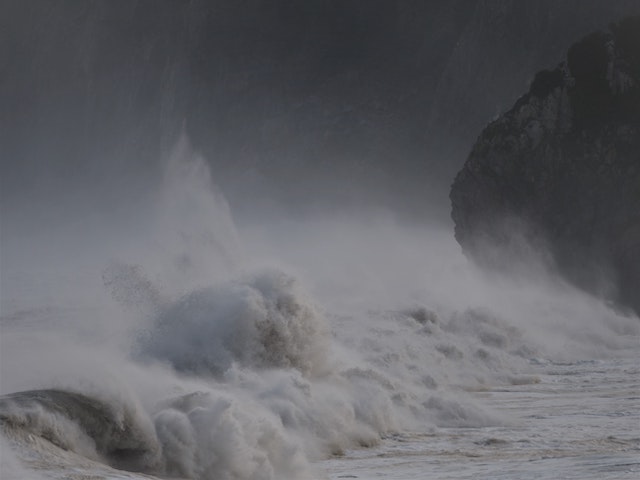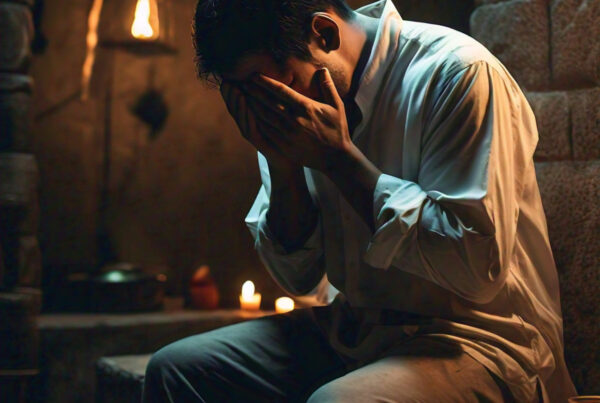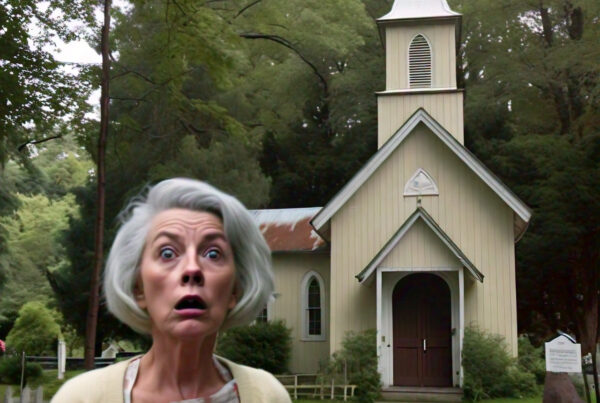
After a long day of ministry Jesus is exhausted. He desperately needs to get away from the crowds and rest, so he gets into a boat and tells his disciples to head to the other side of the lake. After a few minutes, the boat gently rocking as they cross the sea at sunset, Jesus lays down on a cushion in the back and falls sound asleep. While he’s sleeping a violent storm builds over the eastern mountains and suddenly drops onto the sea. Soon the boat is rocking violently, the sail is snapping in the wind threatening to tear in two, and the mast is bending to the point of breaking. Even the experienced fishermen begin to panic. They wake Jesus up, shouting, “Teacher, don’t you care that we are going to drown!” We’ll let someone who was in the boat finish the story;
‘Jesus responded, “Why are you afraid? You have so little faith!” Then he got up and rebuked the wind and waves, and suddenly there was a great calm. The disciples were amazed. “Who is this man?” they asked. “Even the winds and waves obey him!”’
Matthew 8:26-27 (NLT)
I love the irony. The men who’ve been with Jesus the longest…they’ve seen him heal disease, cast out demons, even turn water into wine… they are afraid that this whole thing might end with the Son of God drowning in the middle of the Sea of Galilee. The creator of the universe’s grand story of salvation will end because of a thunderstorm he didn’t see coming. This is a very revealing moment in Jesus’ ministry; months into being with Jesus 24/7 his followers have no understanding of who Jesus is nor his bigger mission on earth. It is now clear they are not maturing as disciples.
We are in one of those Sea of Galilee moments right now. A storm unlike any we’ve seen before is rocking our world. In the middle of this storm the maturity level of the disciples we lead is being revealed, and its pretty discouraging. Attendance at online services is declining, fewer people are engaging in small groups, and the initial surge of volunteerism has all but disappeared. The one place we see many in our congregations actively engaged is arguments on social media over Covid conspiracies. Some days it feels like our boat may indeed sink before this pandemic is over.
There’s another way to look at it, however. In one way this is an incredible gift, to clearly see where we are making mature disciples and where we are not. Without this pandemic we might have continued blindly on, assuming our services, classes and small groups were leading people to take next steps toward maturity. Clearly they are not.
The Navy Seals reportedly have a saying that under pressure no one rises to the occasion, they sink to the level of their training. I believe that is what we are seeing now in churches. Most attenders aren’t stepping up in greater faith, love and sacrifice, they are falling back to their true level of maturity and discipleship. This is a great opportunity as leaders to rethink how we approach making disciples in the American church. Here are three questions to consider as you reassess your church’s approach to disciple making:
-
What do you believe, within your context, are the characteristics of a mature disciple?
The worst thing we could do right now is to start new programs, write new training classes, or implement new systems without stepping back and re-engaging the question, “What are we trying to accomplish?” As you rebuild your definition of a mature disciple avoid the mistake of measuring discipleship by activity; church attendance, serving in a ministry, participation in a small group, Bible reading, quiet time. These are all valid activities that can lead to mature discipleship, but it is also possible to do all of these things and remain immature. Focus on outcomes rather than activities. Good places to start are the Beatitudes and the Fruit of the Spirit in describing a mature disciple.
-
What has your church done to intentionally help people develop these characteristics of a mature disciple?
Make a list of everything you do as a church to help people become mature disciples. Spend time evaluating each activity for effectiveness; How are we seeing people grow in specific mature discipleship characteristics as a result of this program? What is leading people to grow, or to remain stagnant?
-
What should we stop, start or change to improve our ability to develop mature disciples?
If there are things you do as a church that do not seem to help people become mature disciples it might be time to stop doing them. This gets really difficult as sacred cows are potentially sacrificed on the altar of effectiveness, but desperate times call for desperate measures.
There are other activities that need to be massively altered if you are going to raise the bar for discipleship. For example, for most churches the weekend service is the single biggest activity they engage in to make disciples, but it seems massively ineffective. Are we going to keep doing what we’ve always done and hope it works, or are we willing to make significant changes in order to truly engage our people to become mature disciples?
We are in a Sea of Galilee moment as church leaders. The wind and waves have rocked our people, and their true maturity as disciples is being revealed. We can try to get back to what we were doing before and hope it works out better this time. We can beat ourselves up for our lack of better leadership. We can be angry with the immature mob of misfits God has stuck us with. Or we can see this as an incredible gift from God and rediscover what it means to be a church that makes disciples who make disciples.


